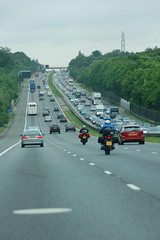When talking to people about local food production, I’m constantly asked whether I have seen the film about Cuba and local food production. Well yes I have, and I’d consider it one of the most important things to watch if you want to get a feel for how we (the West that is) may have to change our production systems in the face of Peak Oil. It’s called the Power of Community: How Cuba survived Peak Oil, and you can watch it on Google Video.
[googlevideo]http://video.google.com/videoplay?docid=-66172489666918336[/googlevideo]
To summarise, after the collapse of the Soviet Union, Cuba had to cope with a sudden drop of imports of fossil fuel, fertilisers and other commodities. This “special period” meant that organic farming became the norm, people were trained to use permaculture principles in urban areas and the amount of food produced locally increased dramatically (well it had to really). The changes took several years and were facilitated due to the fact the government could give anyone who wanted it some land to grow on.
It’s a great positive video to watch, and I imagine the hardships endured by the population and the issues are a little more complex than we have seen. Unfortunately I have not yet found any recent statistics about how much organic produce is being grown over there. I’d also like to see some academic papers on yields achieved.
This idea of localised food production fits in with the whole idea of localisation of economies and communities. This is something which the Transition people have been pushing for a while arguing correctly that Peak Oil and Climate Change will make this sort of thing happen and we need to prepare for it. I’ve just read “Localisation as a response to peak oil and climate change – a sympathetic critique” by Peter North of Liverpool University. It contains a good overview of current issues, I found it’s opened a lot of new ideas for me to think about when thinking specifically about food production. For instance he argues that the “Transition” is being slightly naive about overthrowing the system without politics (although looking at today’s share prices the economic systems might just self-implode) something which I’ve seen other people mentioning recently.
